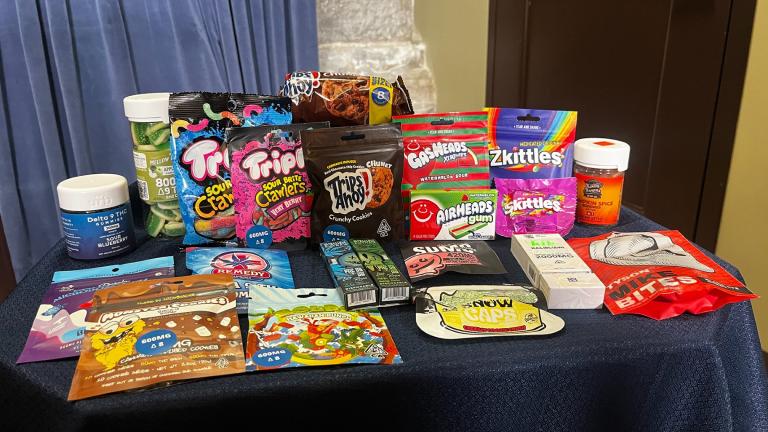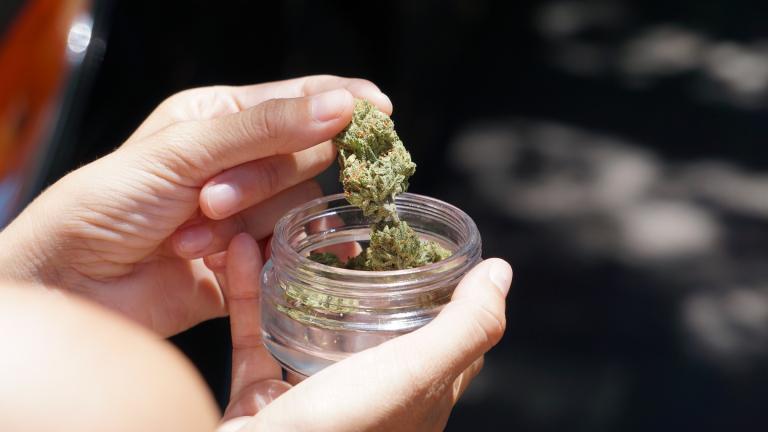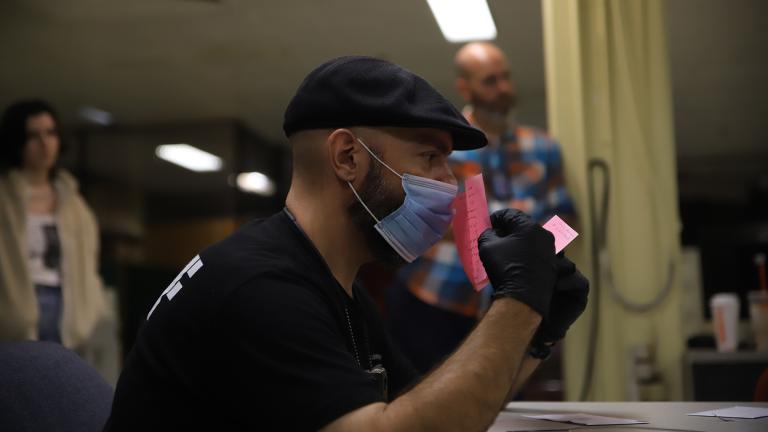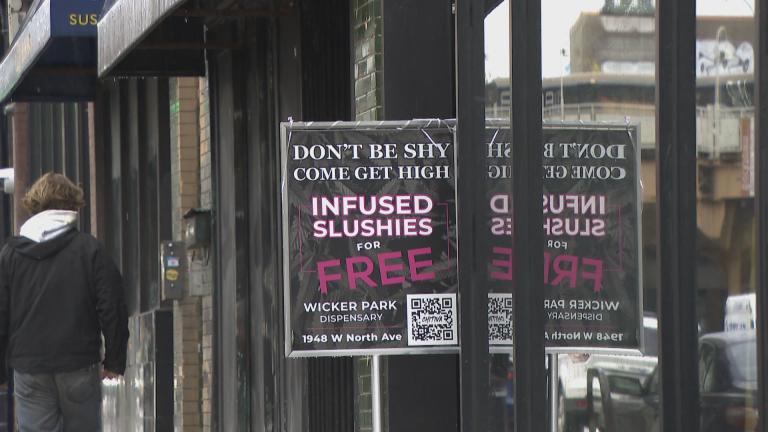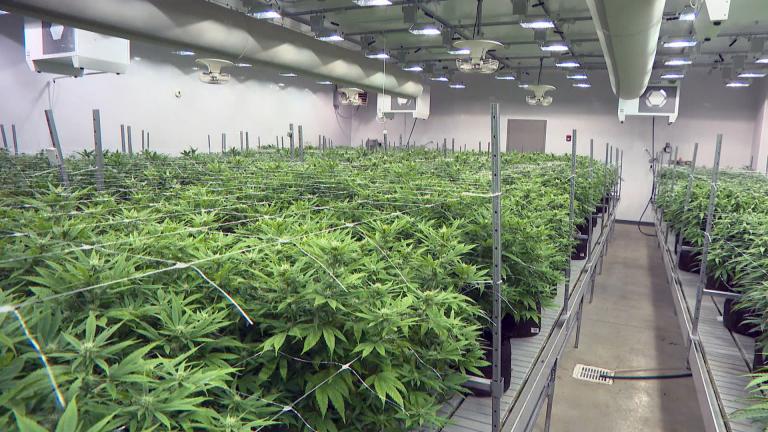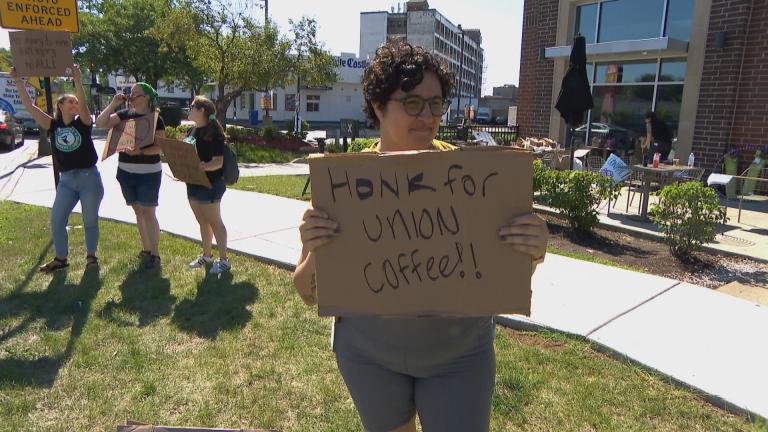When Illinois legalized recreational cannabis nearly a year ago, it wasn’t just marijuana customers who were excited.
Black and Latino entrepreneurs looking to get into the industry were, too.
A central tenet of Illinois’ program was that it would endeavor to right the wrongs of a war on drugs that inordinately punished people of color by giving a leg up to those from disadvantaged communities or who had been punished for low-level drug crimes.
Instead, with pot sales expected to reach $1 billion in 2020, social equity applicants remain locked out. Those profiting off the industry remain those who hold onto medical marijuana licenses awarded by the state years ago without an eye toward equity.
Illinois was supposed to award 75 cannabis dispensary licenses over the summer — a date originally pushed back because of the coronavirus pandemic, then further put on hold after a furor over how the hundreds of applications were scored.
Gov J.B. Pritzker’s administration planned to give those who were close to the perfect scores achieved by the 21 finalists a chance to fix “discrepancies” in their applications, but those who are waiting for that chance say that’s even on hold as lawsuits play out in court.
“I’m trying to keep my language clean, but for lack of a better term, it’s a big cluster jug,” said Marc Pullins of Roseland Matters.
Pullins had hoped to win a dispensary license, with plans to open up a shop in Roseland as a way to spur economic development in a community of 30,000 that he said has no dry cleaner.
Ambrose Jackson said the situation is even more negative for applicants trying for a craft grower license, given that initially the state had required applicants to have secured space for their growing operations.
“We’ve just kind of been in a holding pattern with little to no communication as to what’s going on with these licenses,” he said, and it’s causing “unease and uncertainty – especially when it comes to our team members, and being able to retain talent. But we’re also in a position, just like many other applicants, where we’re losing our building. Which essentially means we’re losing upwards of $100,000 to $200,000 of money invested in this process.”
As a result, many social equity applicants who were supposed to benefit from the new Illinois law are instead in distress, losing investors, money and loans with no clear timeline as to when they’ll learn whether they’ve won a chance to be part of the potentially lucrative pot business.
“It’s an uphill battle. Number one, it’s an uphill battle just to be able to have a seat at the table, which for me and others like me is the most upsetting part of this. We really took J.B. Pritzker at his word and that the purpose of passing legalization for adult use was meant to help address the harms,” said Jackson, of Helios Lab.
Another applicant, Portia Mittons, said she understands that Illinois is having “growing pains.”
Mittons, who lives near Kankakee and grew up in Macomb, said she’s got ownership in a dispensary in Oregon, and the process there was easy — “night and day” compared to Illinois, where applying for licenses felt like writing a dissertation, something that, she said, could make it difficult for social equity applicants without a background in the industry.
But her team, Bridge City Collective, also did not qualify as a finalist after the original scoring of dispensary applications.
“If we don’t qualify, who does? And that’s what was very disheartening to me. Not like I felt like I deserve one because I’m a current owner or because I’m a Black woman or … it was just like, we’re extremely qualified in every aspect you could think of. I successfully ran a business, dispensary, for four years,” Mittons said. “And if I’m not qualified, who is?”
Mittons said it’s a year of missed opportunity — and of jobs — during a time when the coronavirus pandemic has caused unemployment rates to soar.
It’s not as if demand for pot has slowed at all.
“What stings the most is when we get these reports about how much money is being made. We’re up to close to a billion dollars, and none of us have been approved. It’s just not fair,” Pullins said. “I can’t even say I’m happy for the people that’s making that billion because that should be us. This bill was sold to us for economic development and social equity in our communities.”
The Pritkzer administration did not respond to requests for comment.
Follow Amanda Vinicky on Twitter: @AmandaVinicky

